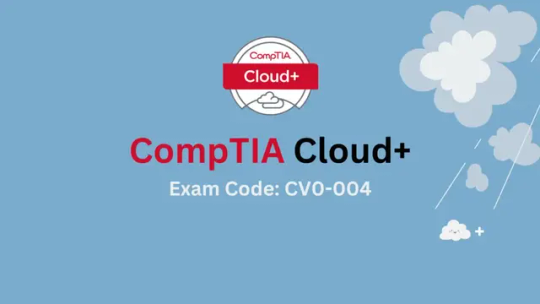Don't wanna be here? Send us removal request.
Text
CompTIA Tech+ (FC0-U71) | Everything You Need to Know.

CompTIA is launching a new certification exam, CompTIA Tech+ (FC0-U71), designed to validate the skills of entry-level IT professionals. It’s an updated version of the CompTIA IT Fundamentals+ (Exam FC0-U61) certification, with some key differences.
In this article, we’ll explore the reasons to pursue or forego the CompTIA Tech+ certification. This certification opens up a wide range of job opportunities in the industry and significantly boosts your earning potential. Moreover, it equips you with the necessary skills to excel in the ever-evolving IT landscape. Let’s dive in and discover how this certification can transform your career!
What is CompTIA Tech+
CompTIA Tech+ is a pre-professional certification for candidates seeking a career in IT. The Tech+ exam certifies that you have what it takes to tackle the fundamentals of computing, IT infrastructure, applications, software development, databases, and security. You must prove that you can handle peripherals, web browsers, and wireless networks. The exam also tests your troubleshooting skills and ability to spot security risks. It might be the perfect stepping stone for newcomers who want to dive deeper into IT and maybe even pursue certifications like A+ down the line.
Who Should Consider CompTIA Tech+ Certification?
Thinking about a career in IT? Not sure where to start? This entry-level cert could be your ticket. It’s great for students and anyone new to tech who wants a solid foundation. Even if you’re already working in tech, it can help you sharpen your skills and stay on top of things. And if you’re a tech-adjacent worker who needs tech literacy to enhance job performance, this cert’s for you!
However, if you have a solid understanding of IT or are already working in an IT job, Tech+ might not be for you.
What Sets CompTIA Tech+ Apart from ITF+?
The CompTIA Tech+ certification represents a significant evolution from the IT Fundamentals+ (ITF+), designed to better equip IT professionals for a rapidly advancing tech landscape. The CompTIA Tech+ certification will be fully available by August 28, 2024, and the CompTIA IT Fundamentals+ (ITF+) will retire in the summer of 2025.
So, what’s the difference between the two? Let’s take a look:
Enhanced Focus on Hardware: Tech+ goes deeper into hardware compared to ITF+. It covers how to install and configure peripheral devices, understand the mechanics of computing components, and differentiate between types of storage.
Cloud Computing and Virtualization: Tech+ brings cloud computing and virtualization into the mix, areas not covered by ITF+. With the rise of cloud services in business infrastructures, understanding these concepts is essential for any IT professional.
Advanced Networking: Tech+ explores networking more extensively than ITF+. It looks at different internet service types, network communication basics, and setting up small wireless networks, highlighting the essential role that networking plays in the IT field.
Cutting-Edge Technologies(like AI): The certification now includes emerging technologies like artificial intelligence (AI) and the Internet of Things (IoT).
Robust Security Training: Both certifications touch on security, but Tech+ does a deeper dive. It tackles encryption, wireless network security, and password management, among other topics, reflecting the heightened focus on security in our increasingly digital world.
ITF+ received relatively little attention from both job seekers and employers. With these changes, we can hope to see a shift for Tech+. These updates should make Tech+ a more comprehensive and practical certification, ensuring that IT professionals are well-equipped to meet the challenges of the modern tech landscape and advance in their careers.
Jobs You Can Get with CompTIA Tech+
The CompTIA Tech+ exam is ideal for individuals pursuing professional-level certifications like CompTIA A+, which can lead to technical support and IT operations roles. While a Tech+ certification may not guarantee your first job, it provides a solid foundation for your IT career. With a Tech+ certification, you can pursue entry-level IT roles such as:
Service and user help desk support
Technical support specialist
Associate network engineer
Data support technician
Desktop support administrator
Help desk technician
System support specialist.
Is CompTIA Tech+ Worth It?
If you’re new to IT and looking to understand the basics, the Tech+ certification could be a good starting point. However, consider these factors before deciding:
Current Knowledge: If you have no prior IT experience, Tech+ is an excellent introduction. However, if you’re already familiar with the basics of computers and technology, you might consider skipping Tech+ and opting for the A+ certification to save time.
Career Goals: It’s uncertain how much employers will recognize Tech+ compared to A+. For entry-level IT roles, employers typically prefer the A+ certification. A+ is likely the better choice if you’re aiming to quickly enter the IT workforce. However, if you’re transitioning gradually into IT, Tech+ can provide a solid foundation and boost your confidence.
Cost and Time Investment: Tech+ is expected to be less expensive and requires less study time than A+, but A+ offers a higher return on investment due to its broad recognition and relevance in the job market.
Job Market Value: ITF+ is rarely a job requirement, and it’s unclear what the case will be for Tech+. However, A+ is often essential for many entry-level IT positions. Investing in A+ is generally more beneficial for your career prospects.
In summary, while Tech+ is excellent for absolute beginners, A+ is the standard for those serious about starting a career in IT. It requires more investment but offers greater long-term rewards.
0 notes
Text

Is CompTIA Cloud+ Worth It in 2024? Choose the Best Cert
CompTIA offers a range of certifications that are highly respected and recognized around the world. Employers value popular certifications such as A+, Network+, and Security+. But is CompTIA Cloud+ truly worth it for your career? That depends entirely on your individual circumstances. Factors such as your career goals, current role, and existing experience all play crucial roles in determining the value of the Cloud+ certification for you.
To help you find your answer, we will consider factors like job demand, alternative certification options, potential salary, and the time and effort required to earn the certification. Let’s dive in.
About CompTIA Cloud+ Certification
CompTIA Cloud+ certification equips you with the skills to manage cloud environments effectively. It’s unique for being performance-based and the only cloud certification approved for certain Department of Defense roles. This certification is ideal for IT professionals specializing in cloud technology, covering everything from cloud architecture and security to deployment and troubleshooting. Whether you’re a cloud engineer or an IT server administrator, CompTIA Cloud+ prepares you for various demanding roles in cloud operations.
Once certified, you will be able to:
Understand cloud architecture and design concepts.
Implement and maintain a secure cloud environment.
Successfully provision and configure cloud resources.
Demonstrate the ability to manage operations throughout the cloud environment life cycle using observability, scaling, and automation.
Understand fundamental DevOps concepts related to deployment and integration.
Troubleshoot common issues related to cloud management.
Does CompTIA Cloud+ Require Prior Experience?
There are no required prerequisites for the CompTIA Cloud+ certification, but CompTIA recommends that candidates have approximately 2-3 years of hands-on experience as systems administrators or cloud engineers. This practical experience is crucial as it equips candidates with the necessary skills to manage and troubleshoot cloud-based infrastructure effectively.
Alongside practical experience, CompTIA also suggests that candidates should have knowledge equivalent to that covered by the CompTIA Network+ and Server+ certifications. If you are confident that you possess the necessary knowledge to take the exam, you can do so without acquiring the Network+ and Server+ certifications.
Is CompTIA Cloud+ Worth It?
Whatever I say in this section, do not let that discourage you from pursuing the CompTIA Cloud+ certification. Always remember that having a certification is always better than not having one. Now, to help you decide, I would suggest carefully considering the benefits and drawbacks of pursuing the CompTIA Cloud+ certification.
Reasons to pursue CompTIA Cloud+:
Foundation Knowledge: CompTIA Cloud+ offers a solid foundation in cloud concepts, making it a great choice if you’re just starting out or looking to transition into cloud-related roles. It covers a comprehensive range of topics, from the basics of cloud services and security to infrastructure management, giving you a well-rounded understanding of the cloud environment.
Vendor-Neutral: Unlike certifications focused on specific platforms like AWS or Azure, CompTIA Cloud+ is vendor-neutral. This gives you a broad overview of cloud technology, which is ideal if you’re working in or aiming for a role in organizations that utilize multiple cloud platforms or are in the midst of deciding their cloud strategy.
DoD Approved: An added advantage of CompTIA Cloud+ is its approval by the Department of Defense (DoD) for certain IT and management roles. If your career path might lead you into federal or defense sectors, having a DoD-approved certification like Cloud+ can be a significant credential, opening doors to numerous opportunities in those fields.
Reasons against pursuing CompTIA Cloud+:
Limited Employer Demand: There are not enough employers looking for candidates with CompTIA Cloud+. It’s more beneficial to identify which cloud certification is more popular in your location and pursue that vendor-specific certification, depending on job demand.
Focus on Vendor-Specific Skills: Many employers prefer certifications that are specific to the cloud platform they use, such as AWS Certified Solutions Architect or Microsoft Certified: Azure Fundamentals. These certifications are often seen as more practical and relevant for hands-on cloud roles.
Limited Entry-Level Relevance: For entry-level IT roles such as help desk or network admin, cloud certifications, including Cloud+, may not be directly relevant or necessary. These roles often require more foundational IT skills, which can be better demonstrated through certifications like CompTIA A+ or Network+.
Here is my suggestion: given your interest in eventually working in cloud technologies, studying for the CompTIA Cloud+ might provide you with valuable foundational knowledge. However, if your immediate goal is to secure an entry-level IT position, it would be more strategic to focus first on certifications that are directly relevant to those roles, such as CompTIA A+ and Network+. After establishing a baseline in IT, you can further specialize in cloud technologies with vendor-specific certifications, which are often more aligned with specific job roles and responsibilities in the cloud domain.
This Article Link: Is CompTIA Cloud+ Worth It in 2024?
1 note
·
View note